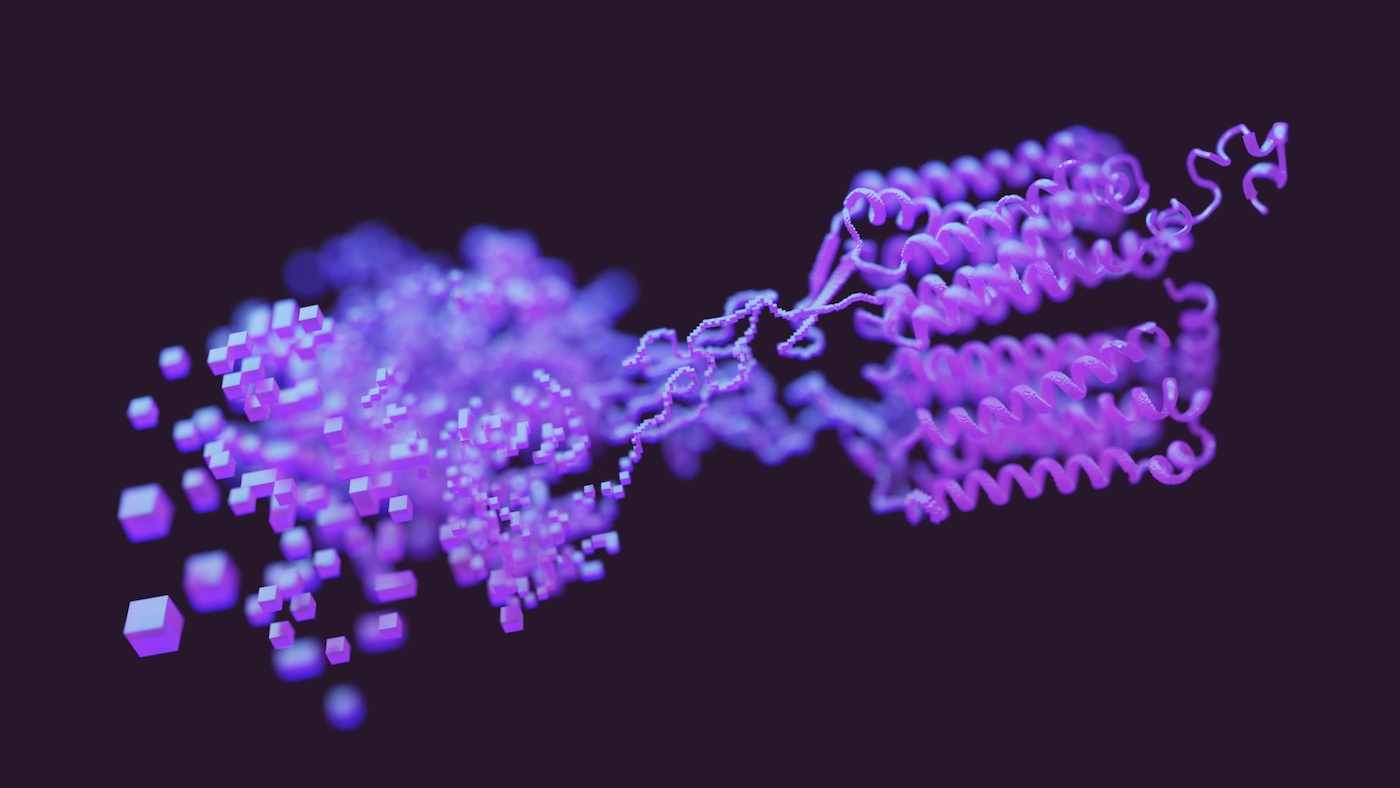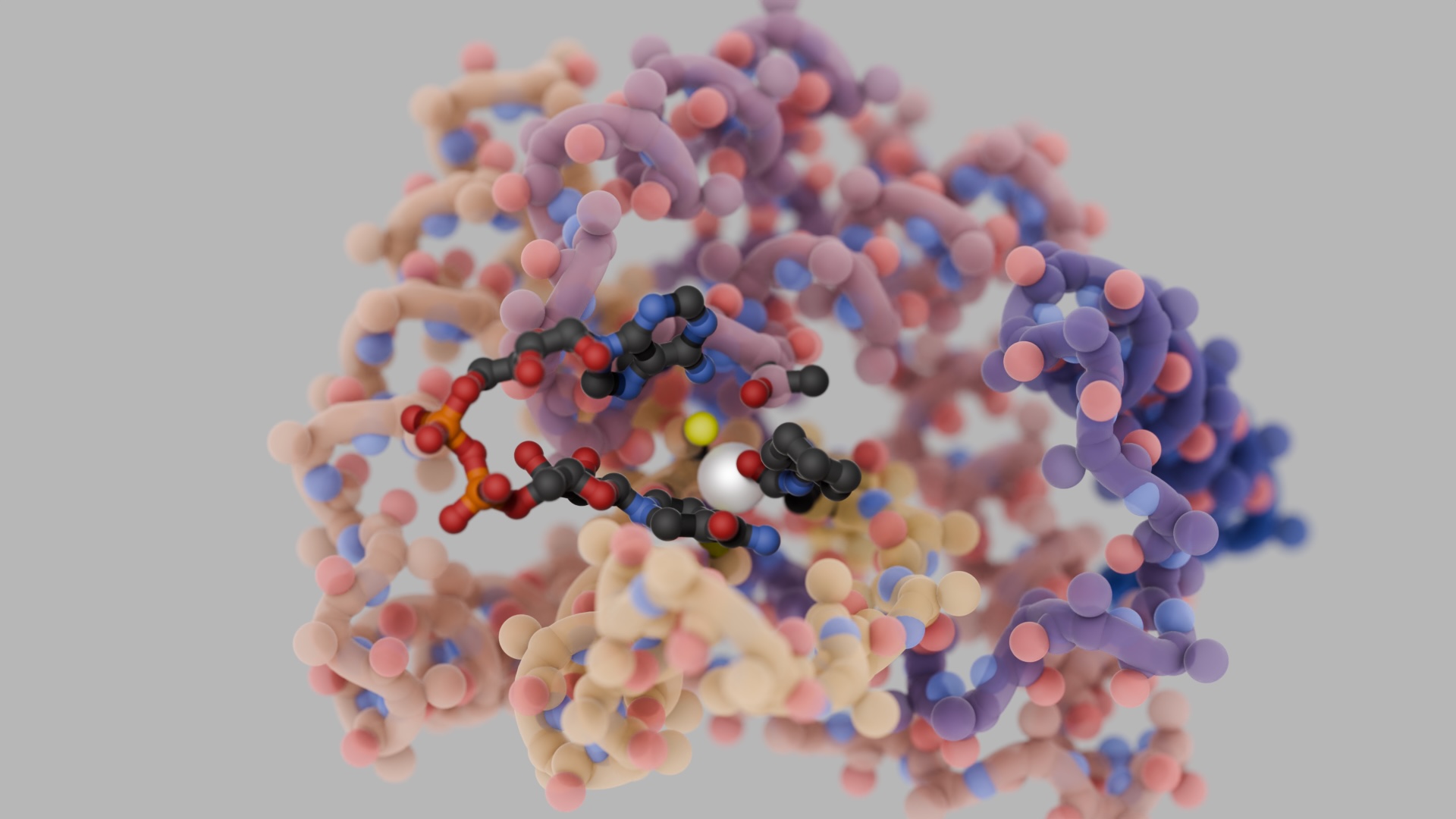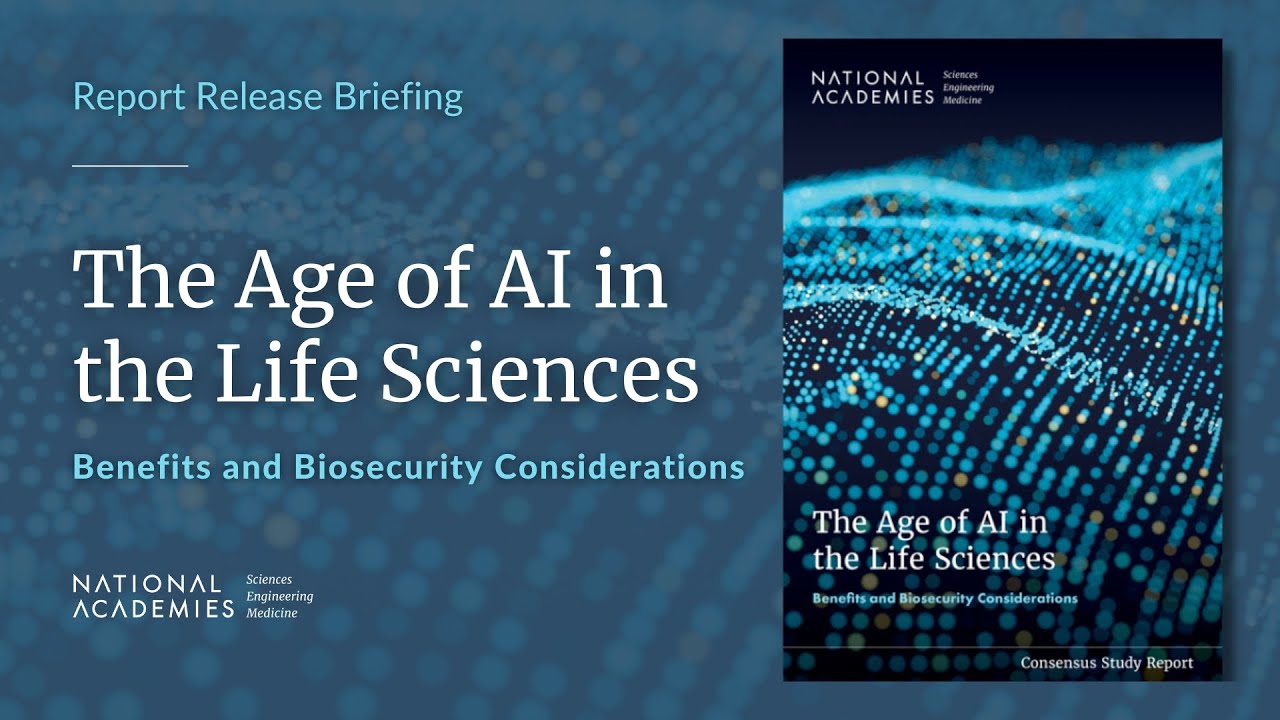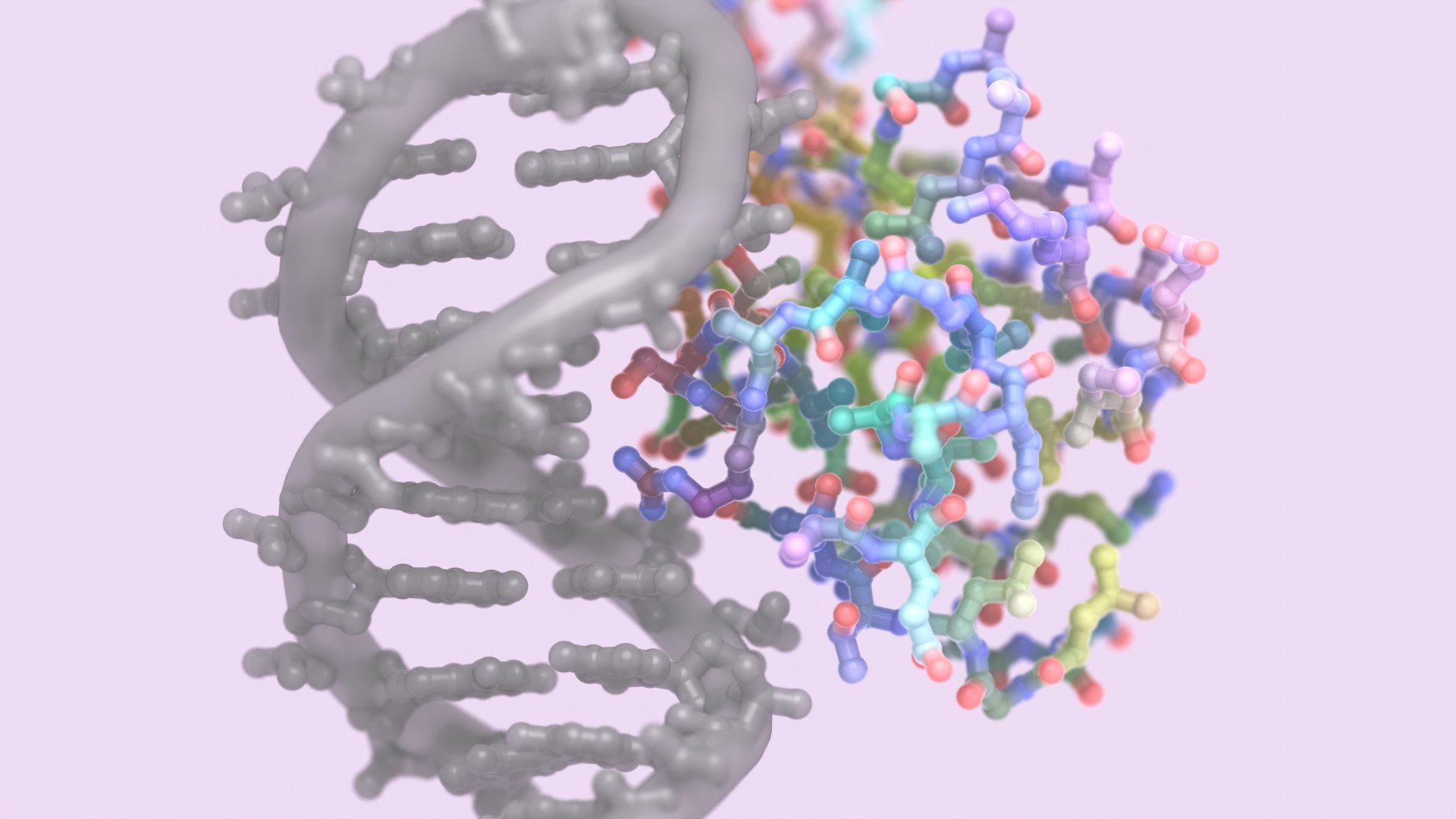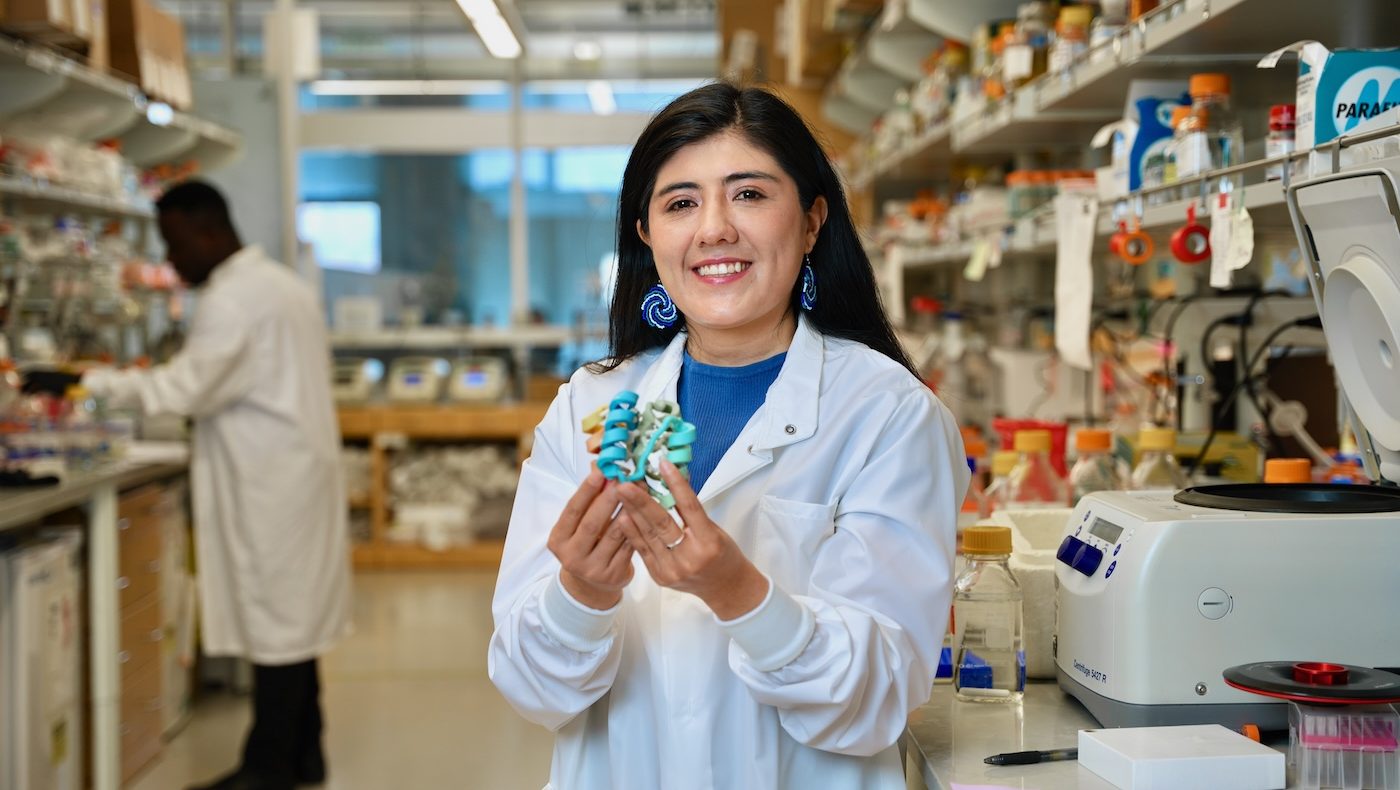To maximize the benefits and minimizing risks of AI for protein design, IPD director David Baker and scores of other senior scientists across 20 countries have signed a community agreement with ten actionable commitments and invited others in the field to join them.
The Institute for Protein Design is playing a key role in an international initiative focused on the safe, secure, and beneficial development of AI tools for biomolecular research. Central to this is a voluntary community statement published today and signed initially by over 90 preeminent researchers in the field.
Leading the signatories is David Baker, PhD, director of the Institute for Protein Design and professor of biochemistry at UW Medicine. His lab’s contributions to AI-driven protein science were recognized by the journal Science as the 2021 Breakthrough of the Year. IPD colleague and UW assistant professor Neil King, PhD, also helped deliver the world’s first medicine produced through computational protein design.
“I view this as a crucial step for the scientific community. The responsible use of AI for protein design will unlock new vaccines, medicines, and sustainable materials that benefit the world. As scientists, we must ensure this happens while also minimizing the chance that our tools could ever be misused to cause harm.”
— David Baker, PhD
Scores of senior researchers working in over 20 countries have also signed the agreement, including 2018 Nobel laureate and Caltech professor Frances Arnold, PhD, and Microsoft’s Chief Scientific Officer, Eric Horvitz, MD, PhD. Both serve on President Biden’s Council of Advisors on Science and Technology, with Arnold as an external co-chair.
An open call for responsible AI
The community agreement, signed by these scientists in their personal capacities, included ten specific commitments to foster responsible AI innovation in the life sciences. These include thorough safety reviews of emerging AI models for protein design and applying these technologies to help create vaccines and medicines for global health challenges.
The scientists also call for improved security measures around DNA manufacturing, a critical step in the research pipeline where potential hazards could emerge. David and Harvard geneticist George Church, PhD recently proposed new DNA synthesis policy in the journal Science.
Today, all senior scientists in this field are invited to sign this agreement. Future gatherings are expected and will explore comprehensive implementation strategies, uniting scientists, security experts, and policymakers. The agreement was drafted with extensive input from scientists and informed by discussions with biosecurity and policy experts and professionals in other AI fields.
“We at the IPD are aware of the power of the new AI biodesign tools. It is fantastic to see this community come together in this way to ensures that they are used responsibly and for the advancement of all.”
— IPD Executive Director Lynda Stuart, MD, PhD
In addition to accepting signatures from scientists, the statement also lists a growing number of supporters who endorse the spirit of this effort. These include biosecurity professionals at the Coalition for Epidemic Preparedness Innovations and members of the Africa Centers for Disease Control and Prevention and the Council on Foreign Relations.
All signatories and supporters are listed at the community statement’s website, responsiblebiodesign.ai.
This initiative builds upon discussions at the AI safety summit we convened last October, emphasizing the importance of responsible management of AI technology and the roles scientific experts can play in shaping future policies. It exemplifies a collaborative spirit among individual scientists worldwide, showcasing their commitment to advancing technology for global benefit.
About the Institute for Protein Design
The Institute for Protein Design at the University of Washington School of Medicine is a global leader in science. From creating AI technologies to delivering the world’s first computationally designed protein medicine, our work reflects our dual commitment to both generate knowledge and achieve impact. Our mission is to create new proteins that solve modern challenges in medicine, technology, and sustainability.

